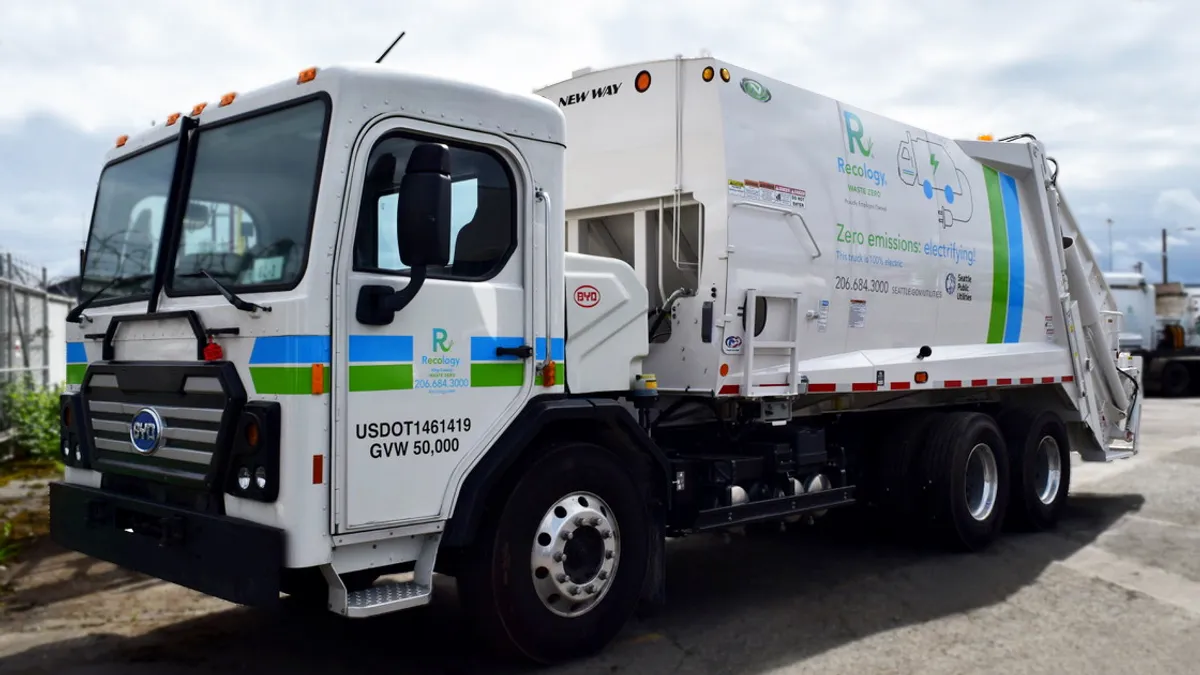UPDATE: July 6, 2020: Following a recent ruling by the Sacramento County Superior Court, backers of the California Recycling and Plastic Pollution Reduction Act have been given more time to gather qualifying signatures for a potential 2022 ballot initiative. This extension allows them to use signatures previously gathered to place the initiative on the November 2020 ballot. The legal petition was led in part by Recology CEO Michael Sangiacomo, whose company has been a primary backer of the effort.
Supporters reported spending $3.4 million and gathering 806,114 signatures, but estimated they will need at least 890,303 signatures to reach the qualification threshold based on past certification trends. Signature gathering efforts effectively stopped from mid-March to early May due to government health restrictions, and have been hindered in recent weeks due to ongoing coronavirus factors. Petitioners now have until Sept. 28 to gather enough qualifying signatures for an expected November 2022 vote.
Dive Brief:
- January 21: Recology is continuing its push for a November ballot initiative in California that takes aim at the plastics industry, kicking in $600,000 of a planned $1 million contribution as of January. Another $1 million is expected from The Nature Conservancy, plus $500,000 from the Plant Based Products Council (which has since exited the campaign), toward a $4.5 million goal.
- The proposal would give the California Department of Resources Recycling and Recovery (CalRecycle) authority to require that producers of single-use plastic packaging and foodware make their products "reusable, recyclable or compostable" by 2030. Producers would also be tasked with reducing the amount of single-use packaging and foodware at least 25% by that date.
- In addition, expanded polystyrene food containers would be banned statewide and retailer take-back programs would be established for relevant items. Finally, a sliding scale "Plastic Pollution Reduction Fee" of $0.01 or less would be applied to select products starting in 2022 as a way to pay for a range of new projects.
Dive Insight:
This proposal has been discussed by Recology for more than a year, with CEO Michael Sangiacomo making the stance official in a December 2018 San Francisco Chronicle op-ed. The idea gained momentum after California lawmakers were unable to pass a major set of packaging bills before their session ended last September.
Those bills were among the most contentious in a busy session for recycling legislation, attracting a range of reactions and heavy lobbying activity. In its final form, the legislation's requirement for recyclability by 2030 would have covered a broader range of packaging types than just plastic. It would have also set a 75% waste reduction target.
Yet, as Recology has argued, these new requirements wouldn't have come with a funding source to help enact the infrastructure changes that many believe are necessary to make them possible. That issue was a key talking point in final negotiations, but also remains challenging because a supermajority vote would be required to pass funding policy.
While many in the recycling industry supported a successful market development bill, SB 54 split the opinions of major players such as Waste Management and Republic Services. Recology's Eric Potashner, vice president and senior director of strategic affairs, said he's received a warmer reception to this ballot concept so far among the state's largest industry operators.
"It takes a lot of money and our entire infrastructure to date has been funded by rate bases. All those companies are in agreement we can’t keep creating these new mandates for recycling in jurisdictions and our industry and only be able to go back to our rate base. There’s only so much there," Potashner told Waste Dive in January. “From our perspectives, the plastics industry is a major contributor to the challenges we face."
For those reasons and others, including concerns around marine debris, Recology's idea has gained backing from a host of environmental groups. Surfrider Foundation, Plastic Pollution Coalition, Upstream, Zero Waste USA and 5 Gyres are among many that have already signed on.
The product taxes would be paid by manufacturers and collected in a state-managed fund. As proposed, 50% of funds would be directed to CalRecycle to manage the system and help expand reduction, recycling and organics activities. This includes market development programs for plastics, glass, fiber and organics, as well as a circular economy grant program to encourage new models such as reusables. Another 30% would go toward environmental mitigation efforts, with the remaining 20% dedicated to local government projects.
According to a December 2019 report from California's nonpartisan Legislative Analyst's Office, this tax could generate revenues "likely in the range of a few billion dollars annually" depending on sales volumes. The report also noted local governments could experience new implementation costs, which "might be partially or fully offset by new tax revenue."
Depending on how plans proceed it is possible that producers could be in for a major paradigm shift. While multiple states are exploring their own versions of producer responsibility legislation this year, the scale of California's market carries even more weight.
“If California does something significant it’s probably going to raise the bar for at least the country, if not the globe," said Potashner.
Various plastics industry groups spent big, before ultimately losing, in a 2016 California ballot initiative regulating plastic bags. And while some major groups ended up supporting SB 54 late last summer, the American Chemistry Council's senior director of state affairs Tim Shestek came out against this ballot proposal. In a November 2019 statement, he said it was "unnecessary" and "could divert resources and energy away from realizing a true circular economy in California."
Supporters maintain their proposal was designed to be complementary to SB 54 if the legislation gains traction this year.














